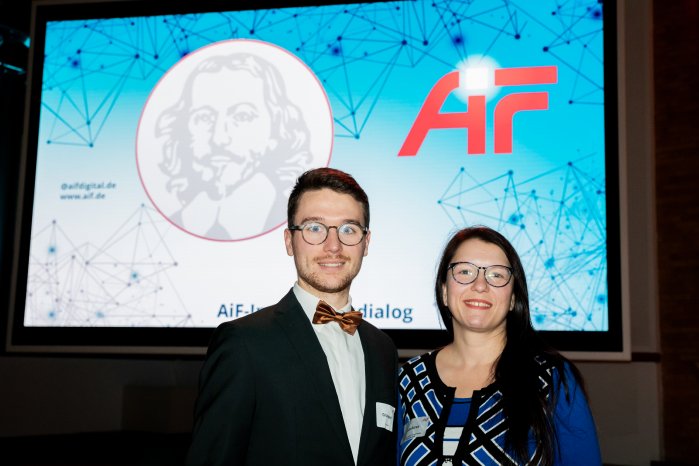Nearly a quarter of the world's energy consumption is due to friction alone. The development of innovative solutions, such as self-lubricating systems, is therefore highly relevant. Preliminary investigations have shown that friction and wear values can be reduced by using lubricant microcapsules in plastics. The capsules rupture under friction, resulting in self-lubrication. However, there was a complete lack of knowledge on the kg scale and on continuous, more industrially relevant processing methods in thermoplastics. The aim of this research project was to fill this gap in the transfer of basic knowledge into practice.
Lubricant-filled microcapsules incorporated into plastics at high temperatures
Dr. Alexandra Latnikova of the Fraunhofer Institute for Applied Polymer Research IAP in Potsdam, Germany, is developing lubricant-filled microcapsules that can be incorporated into plastics at temperatures of up to 260°C. "Lubricant microcapsules are 5 to 50 µm oil droplets coated with a very thin polymer shell," explains the Fraunhofer IAP researcher. "The project has shown that a wide variety of commercially available oils can be encapsulated and incorporated into the plastic like a powder," Latnikova continues.
Capsules are not destroyed
The SKZ investigated how these microcapsules can be incorporated into various engineering plastics (e.g. POM, PA6, PA6.6) and injection molded into components without destroying the capsules. Moritz Grünewald, researcher in the materials development group, points out: "In this project, we were able to produce plastic compounds on a kilogram scale and even incorporate additional reinforcing fibers without destroying the microcapsules during processing. Subsequent tribological tests showed a significant reduction in friction and wear of up to 85 percent in plastic-steel contact.
Ideal for plastics exposed to friction
The developed plastic is the ideal solution for components exposed to friction - including bearing components or slide rails. Self-lubricating systems are particularly advantageous for components that are not accessible from the outside. For example, gears in electronic components are one possible application. When a gear wheel fails due to wear, it usually means a total failure of the entire device. Here, development can help to significantly increase the service life of products and thus save valuable resources.
PFAS-Free Alternative
PTFE is currently incorporated into plastics as an internal lubricant to reduce friction. In comparative tribological analyses, plastic/PTFE compounds have shown higher friction and wear values. In addition, PTFE belongs to the group of per- and polyfluorinated chemicals (PFAS), which are considered to be particularly harmful to health and the environment and could therefore be restricted in their use. Lubricant microcapsules offer a PFAS-free alternative.
"Real benefits for society"
These scientific findings convinced the jury of the Otto von Guericke Prize, which awarded the project a place in the top 3 of this year's research projects. In addition to scientific innovation, the jury also looks for high practical relevance. The project (IGF 21707 BG) was funded within the framework of the Industrial Collective Research (IGF) with the participation of 26 companies. The participating companies came from the entire value chain and tested the materials in an application-oriented environment. SKZ CEO Prof. Martin Bastian praised the award-winning research project: "In science, we talk about breakthrough innovations. Such leap innovations are what the economy and SMEs need. They would make it possible to overcome energy crises or even the climate crisis. "This project is therefore a prime example of pre-competitive research that creates real benefits for our society," Bastian continued. The award ceremony for the project took place in Berlin and was attended by representatives from the worlds of science, business and politics.
To learn more about the research project, watch a four-minute movie
Learn more about SKZ Materials Development
Learn more about Fraunhofer IAP


